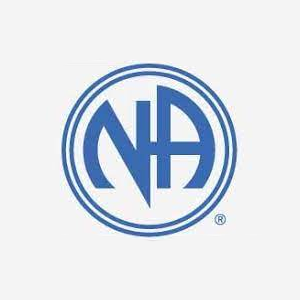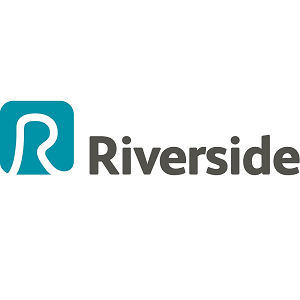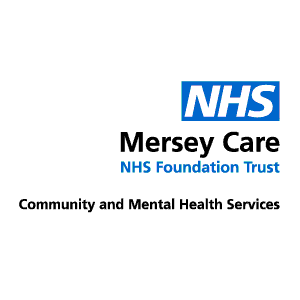Drug & Alcohol Rehab in Merseyside

How Does Rehab Work?
Rehab includes multiple strategies that are created to deal with individual addiction with support, wellness methods, and steps to restoring balance. Clients are introduced to life-changing, supportive, and therapeutic programmes that are led by addiction therapists. Along with individual therapeutic intervention, individuals can benefit from the support received from group sessions. Addictions are treated through an inpatient or an outpatient programme. If you enter an inpatient rehab programme, the programme requires that you stay inside the centre or the facility for the duration of treatment. Outpatient services are an option for those with less severe dependencies and will meet with a counsellor weekly while attending work commitments and staying at home.
What Happens During Residential Rehab?
Rehab is the first step towards recovery and sober living. It can be difficult to work on quitting addictive behaviours on your own but with the support of professional intervention, an addiction-free life can be achieved. You may have concerns about the unknown; however, a breakdown of the process can help put your mind at rest.
Rehab occurs in stages. It starts with a medical assessment. Individuals must be professionally assessed to help staff understand the nature of your addiction, its history and comorbid disorders (such as bipolar or schizophrenia). The information obtained from the assessment is used to create a unique therapy programme for you. Because every person is unique, a personalised treatment plan will help provide a more tailored programme that meets your needs and requirements.
Assessments are followed by detox. Individuals who enter detox will begin withdrawing from substances including alcohol, as the body returns to a normal state of function. This timeline will differ depending on the type of substance used and the length of dependency. Only when the system no longer contains traces of the substance will individuals participate in a treatment plan.
While attending rehab patients will receive therapy. Therapy can be provided on an inpatient or outpatient programme. Therapy consists of individual counselling including Cognitive Behavioural Therapy, skill-building and group therapy.
1. Assessment

A complete medical assessment is the first step to receiving the appropriate treatment in rehab. If you are looking into residential rehab, you can expect a telephone assessment by an admissions coordinator. The telephone assessment will provide the treatment facility with the information needed to develop a unique treatment plan. The medical support staff will also have the information to manage patients through the phase of detox.
Should you require the assistance of a medical expert to manage addiction, seek a medical assessment prior to treatment commencing. Assessments are an important part of choosing the right therapy and whether inpatient or outpatient programmes are most suitable for your healthcare goals.
2. Detox

Detox will be completed prior to therapy. It is often performed in a residential rehab where individuals can receive 24/7 care to reduce withdrawal symptoms.
Detox is important where substance abuse and addiction are present. It should be managed by experienced and knowledgeable medical staff to reduce uncomfortable and severe withdrawal symptoms. For those who go through withdrawal, there is a greater risk of relapsing if not managed within a treatment clinic. In a residential setting, qualified staff may offer detox medication to minimise uncomfortable withdrawal. The approach for therapy, once detoxification is completed, is determined by the assessment.
3. Therapy

Therapy includes the one-on-one and group sessions you will attend with a qualified therapist, counsellor, and support staff. Treatment is provided in both a residential rehab or as part of an outpatient programme. The direction for therapy will depend on individual needs.
Step by Step Process for Residential Rehab
To understand your medical and mental health history.
Arrange a suitable date to begin your journey to recovery.
Begin the managed withdrawal process from substances including alcohol.
To understand the root cause of addiction and how to overcome it.
Aftercare is provided to help manage the risk of relapse.
To help heal the wounds that addictive behaviour has caused others.
Find your Nearest Rehab Centre near Merseyside
The nearest rehab centre is Substance Rehabilitation.
Address: Substance Rehabilitation, 45 Belmont Dr, Liverpool L6 7UW, United Kingdom
Call 0333 4444 432 to discuss your alcohol or drug rehab requirements and any other questions you may have about the process of residential rehab.
Outpatient Addiction Services in Merseyside
To make an informed decision on which form of treatment will guide you in your journey to overcoming addiction, it is important to understand the pros and cons of outpatient and residential rehabilitation. Outpatient care can be very useful as it provides a flexible and cost-effective alternative to residential rehab.
When you progress into an outpatient service, you will be expected to meet with a therapist, support counsellor, or group worker once or twice every week. Rather than stay away from home, you can continue to attend to work commitments and care for your family while you receive addiction treatment for substance misuse.
If you have made a decision that outpatient treatment is an option you want to pursue, the next step is to find a suitable programme offered by a reputable organisation or charity.
NHS Free addiction services in Merseyside

83-93 Stonebridge Lane Croxteth Liverpool Merseyside L11 4SJ
WebsiteThe Benefits of Outpatient Services
A private outpatient plan is tailored to address client needs. The aim is to deliver a quality standard of therapy and introduce individuals to the coping strategies they need to become aware of the early signs of relapse. – outpatient programmes are also considered because it allows individuals to remain working or to tend to their family while receiving help. – Such support services are more cost-effective than residential programmes.
The Challenges of Outpatient Services
While one remains at home and takes part in outpatient programmes, they may be at higher risk of relapse due to continual exposure to triggers and easy access to drugs or alcohol. Another point to consider is that free outpatient addiction services – offered by the NHS and other UK-based charities – do not provide a bespoke treatment plan and waiting lists are to be expected.

How Much Does Rehab Services Cost in Merseyside?
Residential drug and alcohol rehabilitation can cost around £1500- £4000 a week. Private addiction treatment within a residential centre may not be accessible for all. However, charity based and government organisations provide free or low cost programmes that those struggling with addiction can get help from.
An example of a free addiction service is that of Turning Point. Turning Point provides a number of structured support programmes to help with both alcohol and drug problems. You can refer yourself to the service via their website. Apart from charities such as Turning Point, you should consider private counselling or one of the many free support groups including Narcotics Anonymous (NA), Cocaine Anonymous (CA), and Alcoholics Anonymous.
Support Groups in Merseyside

Big Book Study Brink
21 Parr St Liverpool L1 4JN UK

Warrington Group
Fairfield and Howley Neighbourhood Project Fairfield Street Warrington Cheshire WA1 3AJ

Beginner/Newcomer Group
Making Space 46 Allen Street Warrington Cheshire WA2 7JB
The Pros and Cons of Seeking Treatment in Your Local Area
Pros
1. You are familiar with the area which may provide a layer of comfort/safety.
2. Family or friends can easily travel to visit or are close by.
3. You may save on the costs of travelling long distances for addiction treatment, or free services may only be offered in your hometown.
Cons
1. A local environment means access to drug dealers or other triggers. This is more of a concern if you opt for outpatient programmes.
2. Failing to consider locations outside your local area could equate to missed opportunity for more valuable and rewarding programmes.
3. Addiction treatment programmes that are nearby do not always offer the best standard of rehab.
In the event you are unsure about a particular addiction treatment service, you can look to the CQC website for more information including a rating of that service.


